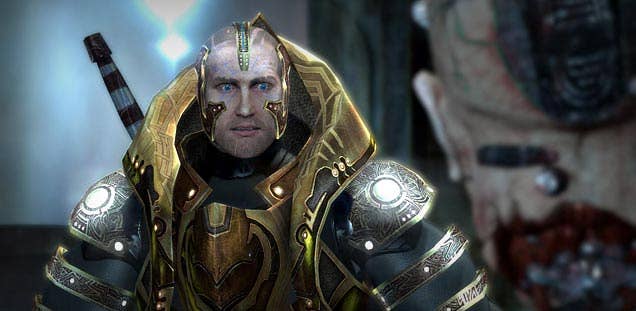Epic v. Silicon Knights: What to Expect
Attorney Mark Methenitis provides an overview of next week's important trial
There have recently been quite a few things that have happened or are about to happen that seemed pretty implausible a few years ago. Duke Nukem Forever came out. Diablo III is about to see a release. Epic v. Silicon Knights is actually going to go to trial. Two of these events will happen next week, but it's this third improbable event years in the making that bears a short discussion and a quick refresher in advance of trial.
It's been almost five years since the initial suit was filed, and I first took a look at the case. It's been a long road, but the gist of the dispute is this: Epic licensed the Unreal 3 engine to Silicon Knights for Too Human. Epic was developing both the Unreal 3 Engine and Gears of War (yes, the first one) at the same time. According to Silicon Knights, Epic diverted resources from Unreal 3 development to Gears of War development, failing to live up to the licensing arrangement but also either deliberately or inadvertently sabotaging what could have been a major competing title on the Xbox360 in Too Human. Epic, of course, disputes these claims.
A lot has happened in the meantime.First there was the practically inevitable countersuit by Epic. Midway got wrangled into it. Last March, a the road was finally paved for trial. Late last year, Epic got a key expert witness for Silicon Knights dismissed.
"This kind of dispute isn't uncommon in business... Two parties sign a contract, and if the contract isn't successful, the party that is injured will likely look to recover from the other party"
Looking back at my original analysis of the case, it's surprising what has changed in terms of potential outcomes. Certainly, it's always possible that there could be some substantial precedent set or an unexpected outcome, but the case, as it has pressed forward, has become a little more of a dry factual question and a run of the mill unfair competition question from a legal standpoint. Certainly, the facts of the case present for some intrigue, and it makes for a good story, but legally, the key question is: Did Epic uphold their end of the bargain in licensing the Unreal 3 engine to Silicon Knights, or did they manipulate the arrangement to their benefit to bolster Gears of War at the expense of Silicon Knights?
This kind of dispute isn't uncommon in business, and it's not even terribly revolutionary in a software context. Two parties sign a contract, and if the contract isn't successful, the party that is injured will likely look to recover from the other party. In fact, even the question of "unjust enrichment" isn't that unusual in games these days, as we're seeing other claims of "that company took advantage of our relationship" in the social games space. These are all really questions of fact: who did what, when, and how (and sometimes why)? These kinds of fact questions will likely be the determining factor in this case, rather than questions of having a legally enforceable agreement or something of that nature.

It is interesting to see, though, that in almost five years, the practical business impacts I mentioned in my original coverage haven't played out to nearly the degree expected. The Unreal 3 Engine has been quite successful, whereas the Silicon Knights engine was just used for Too Human. Moreover, the claims here certainly didn't cause any tectonic shift in licensing to other alternative engine, as the bad press potentially could have. We have seen the Gears of War series flourish, while Too Human shrunk from a potential series to a single title with modest sales.
If anything, there are two probable results here:
1. Silicon Knights is successful, and could see a substantial influx of capital from a verdict. This might help revitalize the studio (or fund Eternal Darkness II). This would also serve as a bit of a warning to other companies working on titles while licensing their engine: Don't leverage resources in favor of your own product to the detriment of your licensees, otherwise you might face a similar claim.
2. Epic is successful, which wouldn't likely serve to change much. It might make people view Silicon Knights as trying to push Too Human's comparitive failure onto others, but the title is so far in the past as to not be a major story today. It might allow Epic to put out an "I told you so" press release, but ultimately an Epic victory makes this case a pretty substantial non-issue.
But, there's always the possibility of a surprising result. Or an unexpected ending to an appeal. The only thing that's certain is we won't know the full impact until it's over, and with appeals, that could still be quite a while.

